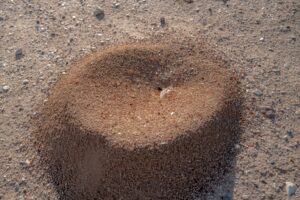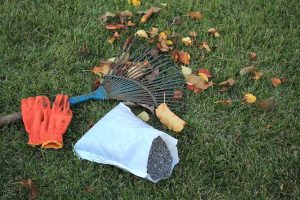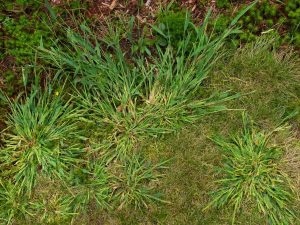If you’ve ever experienced the painful sting of a fire ant, you know how crucial it is to eliminate them from your yard as soon as possible. Fire ants are not only a nuisance, but they can also pose serious health risks through their aggressive bites and stings. At RDS Lawn Care Services, your trusted provider of lawn care in Charlotte, North Carolina, we understand how frustrating it is to deal with these invasive pests. That’s why we’ve compiled a comprehensive guide on how to get rid of fire ants and prevent them from returning.
Identification of Fire Ants Species
Accurately identifying fire ants is essential for effective treatment. There are various ant species, but the most problematic in the southeastern U.S., including Charlotte, NC, is the red imported fire ant (Solenopsis invicta). Recognizing their presence early can prevent widespread infestations and serious fire ant bites.
Characteristics of Red Imported Fire Ants
Red imported fire ants are small, reddish-brown insects known for their aggressive behavior. Ranging in size from 1/8 to 1/4 inch, these ants build large mounds and will swarm aggressively when disturbed. Their sting can cause a painful burning sensation, followed by itchy, white pustules. Some individuals may even experience allergic reactions to the venom.
Bring Real Change with Personalized Lawn Care
Expert lawn care services tailored for your home—reliable, eco-friendly, and affordable. Start transforming your yard today.
Difference Between Fire Ants and Other Ants Species

Fire ants differ from common ant species in several ways. Most notably, their mounds lack a central entrance and are often dome-shaped. Fire ants sting rather than bite, delivering venom that causes fire ant stings, which can lead to blisters and infections. Their aggressive nature and resilience make them more difficult to control compared to other ants.
Common Habitats of Fire Ants
Fire ants prefer warm, sunny climates and disturbed soils. In Charlotte, NC, these pests commonly nest in:
- Lawns and open fields
- Sidewalk cracks and driveways
- Around tree bases
- Underneath patios and decks
- Electrical boxes and HVAC units
These areas offer ideal conditions for nesting and foraging.
Bring Real Change with Personalized Lawn Care
Expert lawn care services tailored for your home—reliable, eco-friendly, and affordable. Start transforming your yard today.
Prevention Strategies
Prevention is a crucial step in fire ant control. Here are effective methods:
- Eliminate food sources like pet food or sugary spills.
- Seal cracks in foundations and around doors/windows.
- Avoid overwatering your lawn.
- Remove yard debris and keep grass trimmed.
- Schedule regular inspections with RDS Lawn Care Services.
Maintaining a Fire Ant-Free Yard
After an infestation is removed, maintaining your yard becomes essential. Consistent monitoring, applying preventive treatments, and seasonal yard maintenance can reduce the chance of re-infestation. At RDS, we provide expert lawn insect treatments to help with this ongoing effort.
Proper Lawn Maintenance
Proper lawn care is your first line of defense. Healthy, dense lawns leave little room for fire ant mounds. Mow regularly, aerate the soil, and fertilize based on seasonal needs. Overseeding thin areas can also reduce the likelihood of colonization.
Landscape Tips
Smart landscaping can deter fire ants. Use mulch sparingly and keep it away from structures. Install physical barriers like gravel around the foundation. Also, avoid using organic compost that may attract insects.
Choosing Ant-Resistant Plants
Certain plants naturally repel fire ants. Consider incorporating the following into your landscape:
- Mint
- Tansy
- Marigolds
- Rosemary
These plants not only enhance your garden but also help deter ant infestations.
Natural Remedies
For those who prefer eco-friendly options, natural remedies can be effective:
- Diatomaceous earth: A powder that damages ants’ exoskeletons.
- Boiling water: Pour directly on mounds (use caution).
- Citrus oil or vinegar sprays: Disrupt scent trails and deter ants.
These methods are safer for pets and children but may require repeated applications.
Chemical Control Methods
Sometimes natural remedies aren’t enough. In such cases, fire ant killers such as bait granules, insecticide sprays, and mound drenches can offer fast results. Always follow manufacturer instructions and consider hiring professionals for safe application.
Safety Precautions
When dealing with fire ants, safety is paramount. Always wear gloves and protective clothing. Keep children and pets away from treatment areas. In case of a fire ant bite, clean the area and apply fire ant bite treatment to reduce inflammation and prevent infection.
Bring Real Change with Personalized Lawn Care
Expert lawn care services tailored for your home—reliable, eco-friendly, and affordable. Start transforming your yard today.
Professional Help
Persistent infestations require professional intervention. At RDS Lawn Care Services, our technicians are trained in how to get rid of fire ants using safe and effective solutions. From diagnosis to follow-up, we provide tailored strategies for Charlotte homeowners.
Long-Term Management
Fire ant control doesn’t end after treatment. Long-term strategies include:
- Seasonal bait treatments
- Soil health management
- Regular lawn care services
Our annual plans ensure your lawn remains lush and pest-free year-round.
Community Awareness
Fire ants are not just a personal nuisance; they are a community issue. Encourage neighbors to monitor and treat infestations. A coordinated effort leads to better results for everyone.
Encouragement for Homeowners
If you’re facing a fire ant problem, don’t be discouraged. With consistent effort and professional support, you can reclaim your yard. Start with small steps and scale up your prevention and treatment methods.
Conclusion
Fire ants are persistent, painful, and problematic—but they are also manageable. Whether you choose natural remedies or professional treatments, it’s essential to stay proactive. RDS Lawn Care Services is here to support you every step of the way with our expert lawn care solutions in Charlotte, North Carolina.
At RDS Lawn Care Services, we offer a comprehensive range of services to keep your lawn healthy and fire ant-free, including fertilization, weed control, mosquito control, lawn aeration, new lawn seeding, lawn disease control, lawn insect treatment, and overseeding. Whether you’re struggling with red fire ants, brown patches, or invasive weeds, our professional team is here to help. Visit our website to learn more and schedule your service today.
Frequently Asked Questions
- What are fire ants? Fire ants are aggressive, stinging ants known for their painful bites and mound-building behavior.
- How do I know if I have fire ants? Look for dome-shaped mounds and reddish-brown ants that swarm when disturbed.
- Are fire ant bites dangerous? Yes, they can cause allergic reactions and painful pustules. Seek medical help for severe symptoms.
- What is the best fire ant killer? Bait granules and mound drenches are considered the most effective, especially when professionally applied.
- Can I use natural remedies to kill fire ants? Yes, options like diatomaceous earth and citrus sprays can help, though they may need frequent applications.
- How do I treat fire ant bites? Wash the area, apply a cold compress, and use over-the-counter creams to relieve itching.
- Do fire ants come back after treatment? They can, which is why long-term management and regular lawn maintenance are important.
- What plants repel fire ants? Mint, rosemary, and marigolds are known to deter fire ants naturally.
- Is professional treatment worth it? Yes, professionals offer tailored, safe, and long-lasting solutions for fire ant control.
- How often should I treat my lawn for fire ants? Seasonal treatments, typically every 3 to 6 months, are recommended for lasting results.




